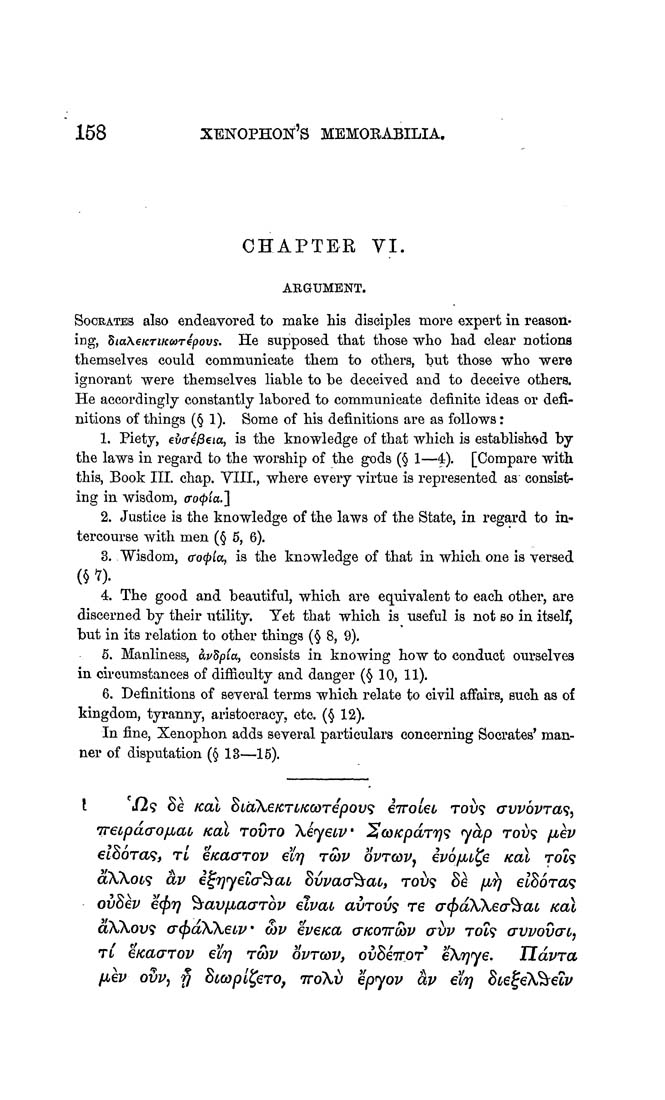158 xenophon's memoeabilia.
CHAPTER VI.
ARGUMENT.
Socrates also endeavored to make his disciples more expert in reason*
ing, ^laXeKriKwrepovs. He supposed that those who had clear notions
themselves could communicate them to others, but those who were
ignorant were themselves liable to be deceived and to deceive others.
He accordingly constantly labored to communicate definite ideas or defi¬
nitions of things (§ 1). Some of his definitions are as follows:
1. Piety, eva-efieia, is the knowledge of that which is established by
the laws in regard to the worship of the gods (§ 1—4). [Compare with
this, Book HI. chap. Vlll., where every virtue is represented as consist¬
ing in wisdom, aocpia.'}
2. Justice is the knowledge of the laws of the State, in regard to in¬
tercourse with men (§ 5, 6).
3. Wisdom, a'ocjyia, is the knowledge of that in which one is versed
(§'?)•
4. The good and beautiful, which are equivalent to each other, are
discerned by their utility. Yet that which is useful is not so in itself,
but in its relation to other things (§ 8, 9).
5. Manliness, avdpia, consists in knowing how to conduct ourselves
in circumstances of difiiculty and danger (§ 10, 11).
6. Definitions of several terms which relate to civil affairs, such as of
kingdom, tyranny, aristocracy, etc. (§ 12).
In fine, Xenophon adds several particulars concerning Socrates* man¬
ner of disputation (§ 13—15).
i if29 8e Kal StdXeKTLKcoTepovs iTToleL tovs avvbvTas,
Tretpdaoptat Kal tovto Xiyetv* ScoKpaTys ydp tovs ptev
eiSoTas, tI eKaaTov ety t&v ovtcov, ivbptt^e Kal toIs
dXXots dv i^yyela^at Svvaa'^at, tovs Se pty eiSoTas
ovSev ecpy GavptaaTbv elvat amovs Te acpdXXea^at Kal
aXXovs acpdXXetv* &v eveKa aKOTT&v avv toIs avvofjat,
Tt eKaaTOV ety t&v ovtcov, ovSiiTPT eX^yye. UdvTa
p.ev odv, y Stcopl^eTO, ttoXv epyov dv ety Ste^eXGelv
|








